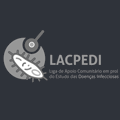Notícias
Destaques
Portuguese experts emphasize efficacy of vaccination, containment measures
Source: Xinhua | 2021-12-01 05:25:16 | Editor: huaxia
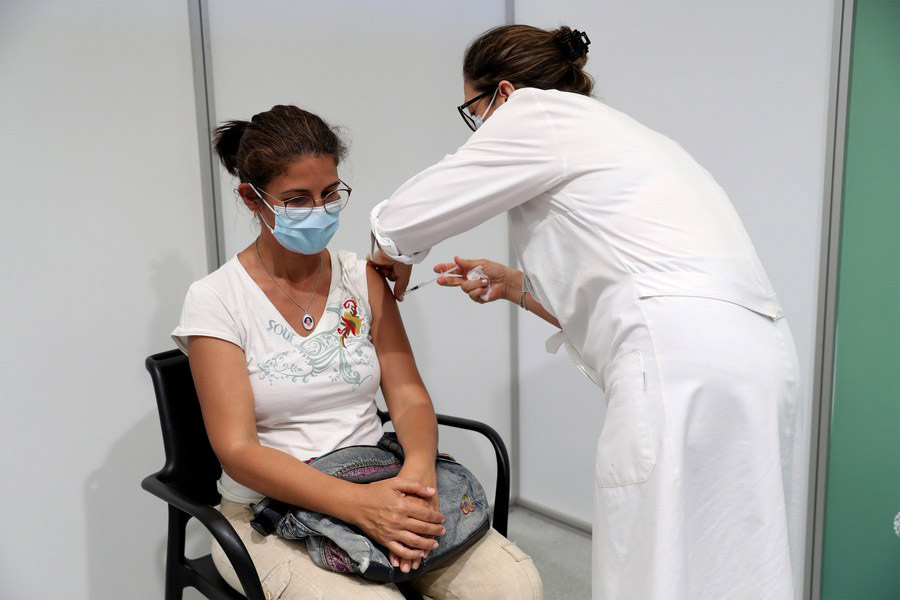
A woman receives a dose of COVID-19 vaccine at a vaccination center at Alcabideche sports complex in Cascais, Portugal, on July 16, 2021. (Photo by Pedro Fiuza/Xinhua)
According to Pocas, to be successful in controlling COVID-19, it is necessary to detect those infected as early as possible, be very assertive in identifying the strain, and isolate the possible contacts of the infected.
LISBON, Nov. 30 (Xinhua) — The recent spike in COVID-19 infections, hospitalizations and deaths has prompted the authorities in Portugal to announce a return to the “state of calamity” on Dec. 1. The new measures include intensified health checks at the country’s borders and the reinforcement of the vaccination campaign.
In an exclusive interview with Xinhua, infectious disease specialist Jose Pocas, director at the Hospital de Sao Bernardo in Setubal, said that the pandemic situation in Portugal is “very uncertain.”
“There is a rapid rise in new cases, especially ones caused by the new (Omicron) variant of the virus, and there is a possibility that further mutations remain to be discovered.”
However, Portugal is in a “privileged situation” because the levels of vaccine acceptance are high even in comparison to the other, more developed countries of Europe.

Passengers arrive at Lisbon airport in Portugal on May 19, 2021. (Photo by Pedro Fiuza/Xinhua)
According to Pocas, vaccine refusal is practically non-existent in Portugal, which makes it a “model for other countries,” and leaves the population “more protected against new strains” of the virus.
“The COVID-19 situation in each country mirrors the level of vaccine acceptance there. In other words, countries where more than 25 percent of the population are not immunized are bound to experience more severe cases, and higher transmission and mortality rates,” Pocas said.
According to Pocas, the cases of the new Omicron variant were detected in Portugal among members of a professional football club, and the isolation of those infected could control the outbreak.
“Portugal is doing what is needed: border control, cancellation of flights to countries with more serious situations, and internal health protection measures,” he said.
“The measures adopted by Portugal have already proven effective, but it will never be possible to completely prevent the spread of the disease. Even those who are vaccinated are not completely protected, but it is better to vaccinate people to prevent an exponential growth in infections.”
According to him, to be successful in controlling COVID-19, it is necessary to detect those infected as early as possible, be very assertive in identifying the strain, and isolate the possible contacts of the infected.
“We must not panic, but we must be alert and be very active. Each citizen must comply with the measures in force, which are easy to do,” he said.
Margarida Tavares, infectious diseases specialist at the Hospital S. Joao in the city of Porto, considers most of the measures implemented by the government “adequate.” These include the mandatory use of face masks and the wider use of the vaccination certificate.
However, she believes it is necessary to be cautious because the PCR (polymerase chain reaction) test “may indicate as positive past infections that are no longer contagious.”
Tavares also supports the reinforcement of the vaccination campaign and she considers it “essential” to commence with the vaccination of children older than five, as that is the “age group that shows a higher incidence rate.”
In Portugal, 1,161,527 people have already received a booster dose against COVID-19, according to the latest vaccination bulletin released by the Portuguese Health Directorate, and 8,574,702 people have already completed primary vaccination with two doses.
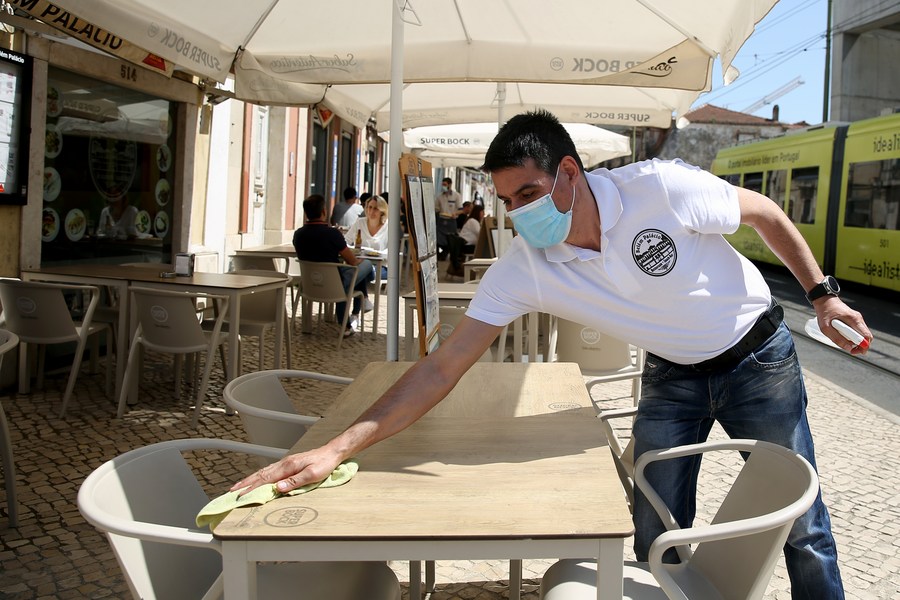
A waiter cleans tables at restaurant terrace in Lisbon, Portugal, April 5, 2021. (Photo by Pedro Fiuza/Xinhua)
Outros artigos em Destaque:
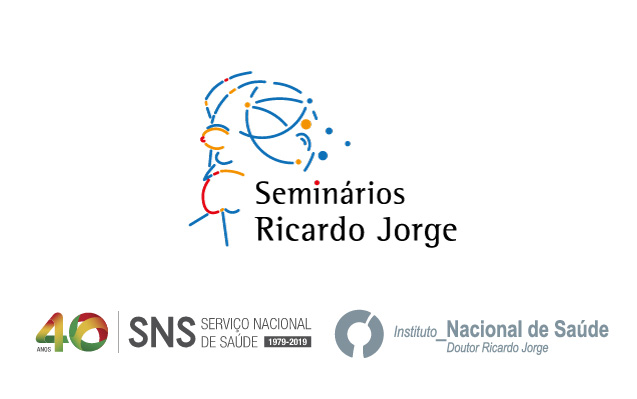
Seminário “Vírus West Nile: Abordagem One Health para garantir a eficácia da vigilância”: 12 de dezembro
O próximo Seminário Ricardo Jorge, intitulado “Vírus West Nile: Abordagem One Health para garantir a eficácia da vigilância”, realiza-se no próximo dia 12 de dezembro (14:30), em Lisboa, no auditório do Instituto Nacional de Saúde Doutor Ricardo Jorge
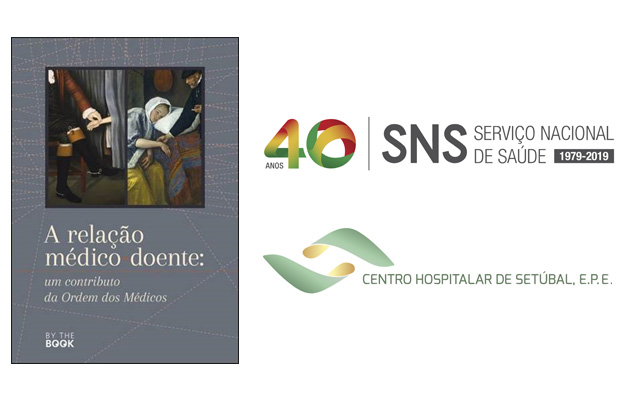
Lançamento do livro “A relação médico-doente: um contributo da Ordem dos Médicos” coordenado pelo Dr. José Poças
O livro “A relação médico-doente: Um contributo da Ordem dos Médicos” foi lançado no dia 25 de novembro, com um momento musical e depoimentos sobre a obra, no Arquivo Nacional da Torre do Tombo.
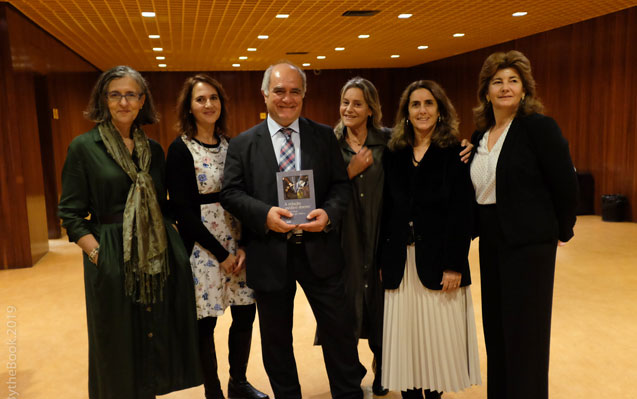
Apresentacao do Livro: “A relação médico-doente: um contributo da Ordem dos Medicos”
Coordenação de José Poças
Auditório | Arquivo Nacional da Torre do Tombo
25 de Novembro de 2019 | 18h00

Dr. José Poças em entrevista num programa sobre assuntos científicos à Antena 1
Ponto de Partida 114 – Super Fungos – As muitas perguntas e algumas respostas de investigações portuguesas das várias ciências e o modo como se ligam






